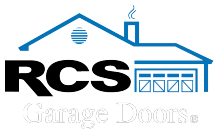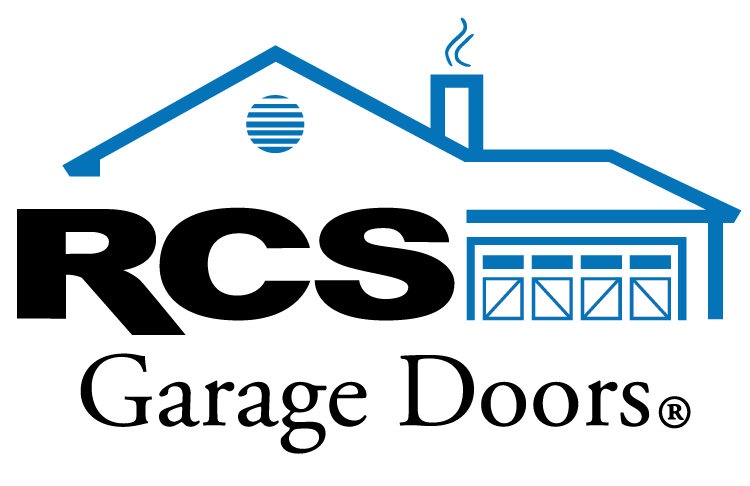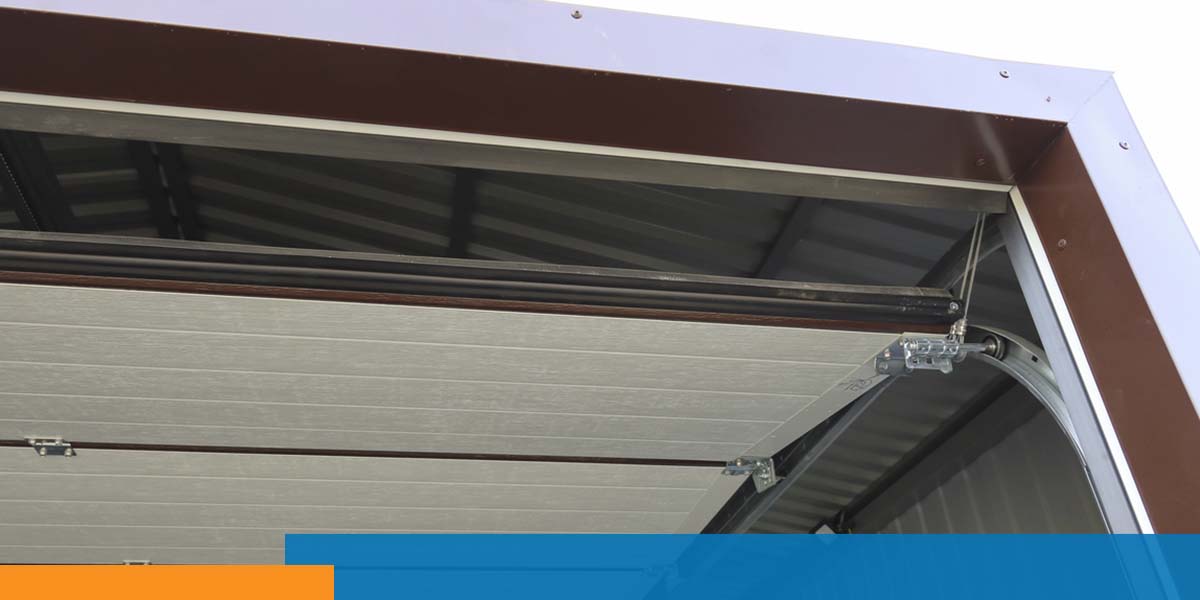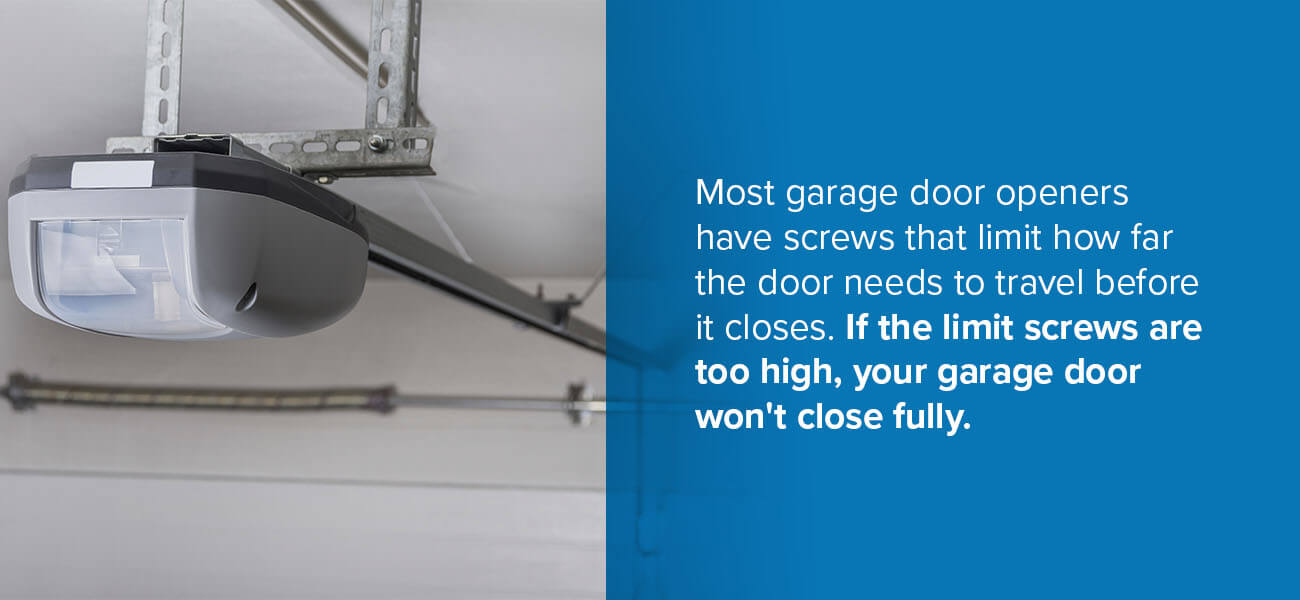When leaving for work this morning or returning home, was your garage door refusing to close? While an uncooperative garage door is inconvenient for homeowners, several possible explanations exist for why your garage door is not closing.
The most typical reasons your garage door won’t close are mechanical issues or a garage door opener motor malfunction. You can repair some of these garage door issues with minor adjustments. Other problems are too complicated or hazardous for homeowners to replace themselves and require the assistance of a local garage door repair company.
As you look for the cause of your garage door closing problems, note whether the garage door won’t close all the way, won’t close with the remote or if the motor is running but the door won’t lower. If your garage door won’t even close manually, there could be a serious issue.
Call Our Service Team For Help
How to Fix a Garage Door That Won’t Shut
If your garage door won’t close, one or more components may have failed. That also includes the garage door opener, which is an extension of your garage system. Here are quick ways to troubleshoot and fix a garage door that won’t close:
1. Examine the Garage Door Opener
Most homeowners rely on garage door openers, which use electric motors to open and close garage doors. If these devices malfunction during operation, the door won’t open or close automatically. The most likely culprit with door openers is power delivery. Confirm that the garage door opener receives power and responds to the remote control.
You also want to check that the remote works. Try shutting the door using the wall console, and if it works, replace the batteries on your remote and confirm that it’s still programmed to the opener.
2. Clear Obstructions
If the opener looks fine but the garage door still won’t close, there could be something obstructing it. It’s likely that the obstruction is around the tracks and rollers, two key components that allow your garage door to roll up and down. Use a rag or brush to clear dust and debris from the tracks to ensure nothing blocks the door’s path. Also, check that the rollers are not stuck.
Rust and dents along the tracks or damaged rollers can also prevent smooth movement. If the issue is rust, lubricate with white lithium or a silicone-based product. As for damaged rollers and bent or dented tracks, it’s best to seek professional repairs and replacements for safe and high-quality work.
3. Clean and Align the Sensors
Modern automated garage doors have safety sensors on either side of the door opening near the bottom. These sensors detect objects on the door’s path and send a signal to the garage door opener to stop the door from closing and reverse.
If your garage door won’t go all the way down, the sensors may be preventing it from closing. Try cleaning the photo eyes as dirt interferes with the infrared beam, which may cause false signals. False signals can also occur due to sensor misalignment. Loosen the receiving sensor and adjust it to align with the transmitting sensor.
If your garage door still won’t close and your sensors are aligned, make sure they receive power and check the wiring for damage. If the wires are damaged, you’ll need to replace them. If you’ve checked over everything and still can’t find the issue, it’s likely a sensor failure. If so, you’ll need a new sensor.
Travel Limits
4. Adjust the Limit Screws
One of the reasons a garage door won’t close all the way is the door opener limit screw being less than what you need to fully shut the door. You can fix this issue by adjusting the down limit switch on the side of the motorhead.
With the door closed as it is, measure the space between the garage door and the ground. Using a screwdriver, turn the screw while testing the door with each turn until it travels the remaining distance to the ground. You can refer to your manual to determine how much you need to turn the screws.
5. Have Broken Springs Replaced
A broken torsion or extension spring is a possible reason your garage door won’t properly close. These high-tension springs support the weight of your garage door, and if they snap or crack, they will cause a misalignment, preventing the door from closing properly.
While replacing broken garage door springs can correct misalignment and allow the door to close, it’s not a safe task for a homeowner to take on. Bring in garage door experts because handling springs can cause further damage or serious injuries if you lack the experience.
FAQs
Here are frequently asked questions about garage doors failing to close:
Why Won’t My Garage Door Shut?
A garage door may not shut for several reasons, such as garage door opener problems, obstructions, sensor issues, incorrect limit screw settings and broken springs, among others.
Why Is My Garage Door Blinking and Not Closing?
There could be an issue with your garage door opener. Other potential causes are engaged automatic or physical locks, sensor failure and wiring problems.
Why Does My Garage Door Keep Opening After I Close It?
Your garage door might keep opening every time you close it due to safety sensor issues, loose or damaged wiring, obstructions, remote or wall console issues, and garage door opener malfunctions.
For Quality Garage Door Repairs, Contact RCS Garage Doors
For the best, most knowledgeable and reliable garage door repair and maintenance services throughout North and South Carolina, contact your local experts at RCS Garage Doors. Our professionals will do whatever they can to make sure you can close your garage door.
We have over 30 years of experience serving homeowners in North and South Carolina. We believe in offering our customers affordable, quality garage door services using only the best products and materials available to guarantee lasting, dependable repairs. Request service today!


 Register My Door
Register My Door



